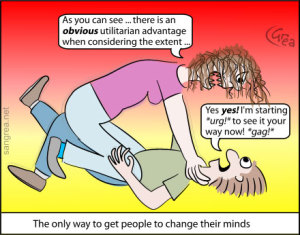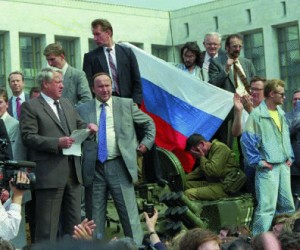Attending a canoe school years ago, I fell out of the canoe the first day. The second day, I and my teammate managed to overcome a series of rapids, including unsticking ourselves from a rock without capsizing.
Unlike canoeing, which we don’t have to attempt, we have no choice in negotiating the currents of a disorderly world. And according to a U.S. diplomat retiring after a 38-year career, the world isn’t going to improve in the near future:
“If you look at the world, you have to conclude that in the coming generation, the forces of disorder are going to be as challenging as we’ve seen them over the last 10 or 15 years . . . . learning to navigate effectively in that kind of a world is extremely important.” (William J Burns, The Foreign Service Journal, November 2014,)
Burns, encouraged U.S. diplomats to “conduct diplomacy amidst disorder.” The advice could serve any of us attempting to live rightly amidst the disorder of the day. Religious, political, and cultural institutions all swim in a turbulent current.
We choose our direction and steer as best we can. If we fall out, we get back in and use what we’ve learned. What we don’t do is allow the rapids to freeze us. We keep propelling our chosen boat despite the disorder.


 It’s difficult these days to express opinions.
It’s difficult these days to express opinions. Give weapons to the moderate forces in Syria? How do we keep the weapons from falling into the hands of the region’s extremists, as may be happening now in Iraq. Once provided, weapons cannot be recalled like peanut butter jars from a factory that we discover has sprouted salmonella.
Give weapons to the moderate forces in Syria? How do we keep the weapons from falling into the hands of the region’s extremists, as may be happening now in Iraq. Once provided, weapons cannot be recalled like peanut butter jars from a factory that we discover has sprouted salmonella. Flying in a small plane over one of Saudi Arabia’s deserts in 1991, I read of the first attempt of the old Russian guard to bring back Soviet Russia after Gorbachev’s pivot toward the West. Boris Yeltsin, showing courage he lacked later in bringing true democracy to his country, stared them down and won the day. Russia appeared once more set on the road to what we call Western liberalism.
Flying in a small plane over one of Saudi Arabia’s deserts in 1991, I read of the first attempt of the old Russian guard to bring back Soviet Russia after Gorbachev’s pivot toward the West. Boris Yeltsin, showing courage he lacked later in bringing true democracy to his country, stared them down and won the day. Russia appeared once more set on the road to what we call Western liberalism.